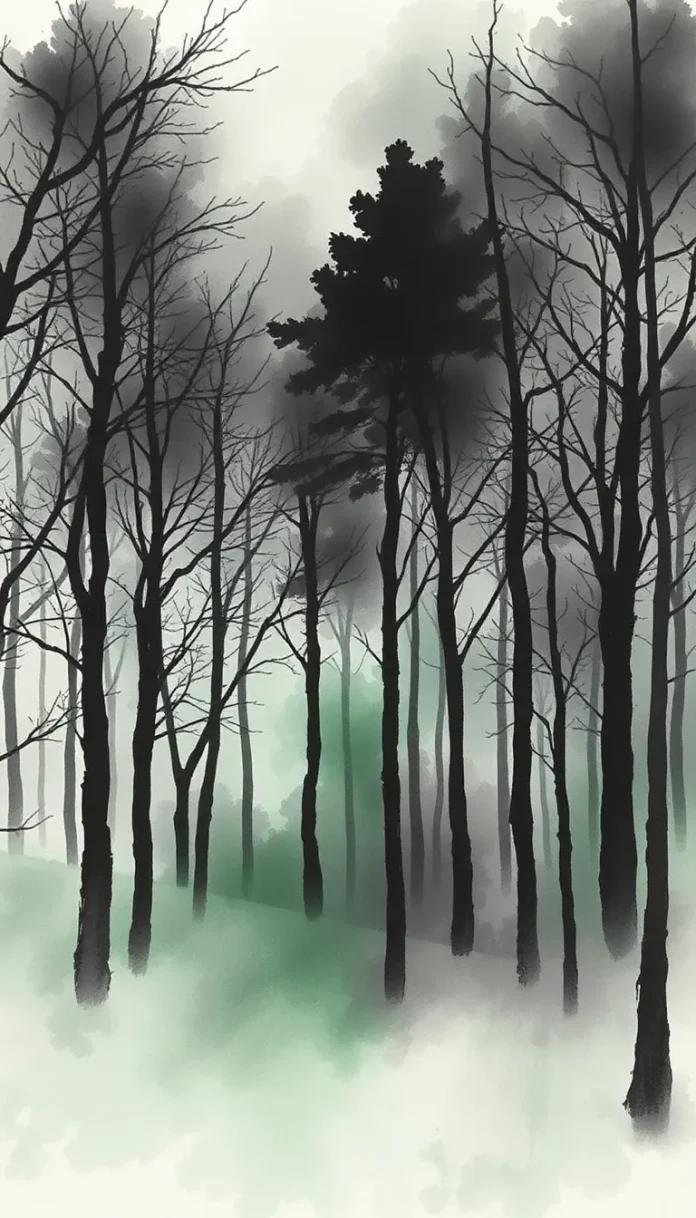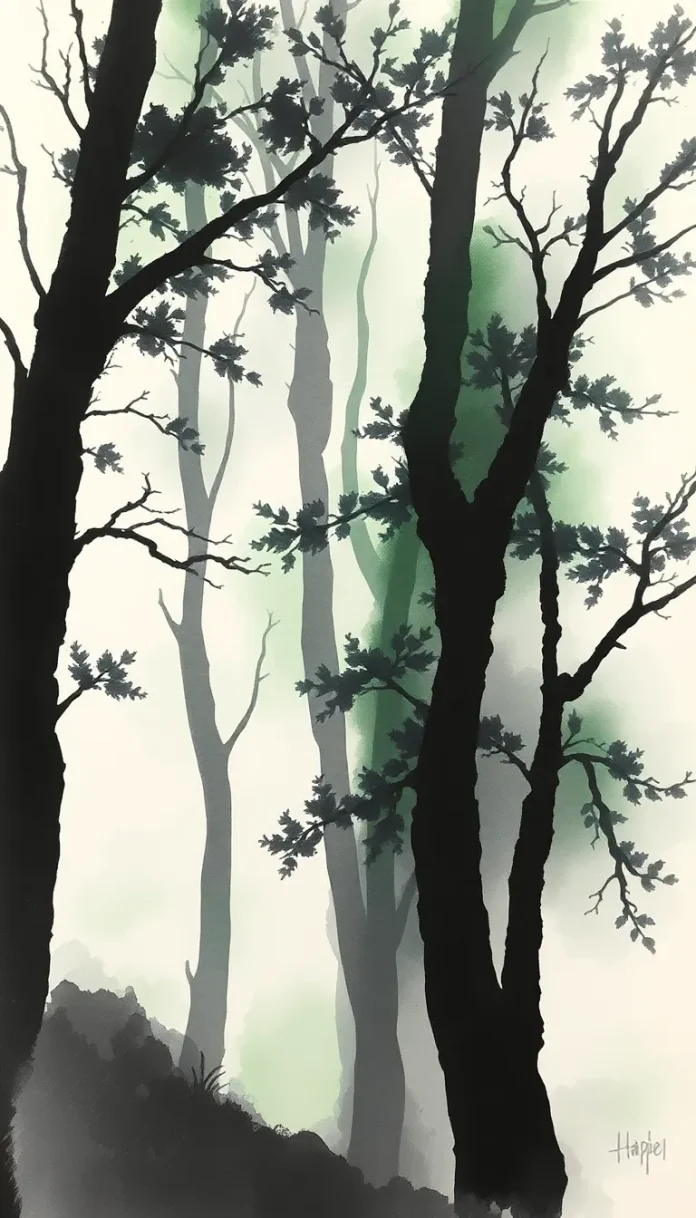The Phantom of the Deserted Stage
He ambled toward the center of the cavernous hall, his footsteps soft upon the worn, stained boards, reminiscent of battles fought between hope and despair. The memories of a life once aglow with the fervor of performance surged within him like half-remembered lullabies, and with each measured step he recalled the fleeting glow of limelight, the adulation of once fervent audiences, and the truth—that each moment on stage, though golden, was as ephemeral as a shadow at dusk.
Beneath the vaulted ceiling, where dust motes danced like spectral sprites in the silver beams of a dying sun, the actor’s voice—both tremulous and resolute—broke the sacred silence in a soliloquy to the departed time:
“Here amidst these lonely echoes, I stand,
A solitary chronicler of art’s lost lore;
My heart, a vessel seeking the distant land,
Where no lament shall bar the future’s door.
Oh, cruel solitude, ye who conscribe my plight,
I wander in this barren realm of recollection,
Where every beam of light longs for the night,
And every sigh confesses its own defection.”
Around him, the remnants of velvet seats and dilapidated curtains bore witness to epochs of passion and despair. Each tattered drape, each creaking beam, was a testament to the vibrant history of a theatre that once brimmed with life. Within these silent walls, the ghosts of erstwhile dramas—and of resplendent victories—murmured softly into the void, reverberating through the empty corridors with a spectral cadence.
Through the grandeur of decay, Acteur oublié perceived figures, not entirely of fleshy existence, but shimmering phantasms wrought from memory and yearning. In an alcove shadowed by dust and time, he espied the faint outline of a former stage companion, a fellow artist long consigned to the annals of oblivion. Her smile, rendered in the gentle hues of remembrance, flickered like a candle in the gloom.
“Art thou but a shade or an echo of mine own soul?” he inquired, casting his eyes in wonder.
A whispered reply danced upon the languid air:
“In dreams we meet, where passion doth dwell,
And time, fickle choreographer, doth weave our spell,
For though our forms be dimmed by loss’s relentless tide,
Our spirits entwine where memories abide.”
Thus spake his phantom counterpart—a specter of artistry now both solace and torment—a reminder that even in isolation, the human heart did yearn for communion, for a shared destiny measured in fleeting splendor yet marked by eternal sorrow at the cusp of oblivion.
Acteur oublié’s wandering footsteps carried him past rusted chandeliers, whose once radiant crystals lay smudged with layers of dust and bygone tears. Each ornament, each relic of an age when dreams took flight, recalled to him the irony of fate: to forge an immortal legacy on a transient stage. Here, in the shadow of absence, he grappled with the eternal question of existence:
“Is our sojourn here but a prelude to an even graver silence? Or shall our acts—our poignant displays of ephemeral art—forge a whisper in the endless scroll of time?”
Drifting through the labyrinth of his memories, the solitary actor recalled the encores of applause, the gentle exultation of an attentive audience enraptured by the beauty of spoken verses and the cadence of drama. Yet now, bereft of the incentives of the past, he found his only camaraderie in the still air and the silent architecture that bore witness to his ruin and his triumph alike.
In a secluded corner of the vast theatre, where broken seats and discarded masks lay strewn as casualties of the relentless progression of time, Acteur oublié unfurled a tattered memoir—a collection of verses and soliloquies penned in the fervor of youth. The brittle pages exhaled a ghost of their own, a reminder that art, though born unto a mortal frame, transcended the encroachments of decay. And so, in a trembling voice imbued with both defiance and despair, he recited:
“Two souls entwine upon fate’s fabled stage,
One, the beacon of dreams now queued in twilight’s gloom;
The other—a phantom, confined to memory’s cage,
Both seeking solace in the remnants of a passion’s bloom.
Yet we wander in realms where all passions fade,
And the aura of brilliance is but a silent decree,
For in every act, though fleetingly portrayed,
Doth linger the bittersweet hue of our mortality.”
Whence came these soliloquies, these wistful refrains? Were they but the musings of a dreamer condemned to the solitude of reminiscence, or did they echo from the very spirit of the theatre—a venerable entity that had once been an altar to emotions in all their raw, human reality? The deserted hall, once saturated with life’s vibrant cacophony, now assumed the solemn guise of a sepulcher, preserving in its decaying bosom the embers of passion that once set hearts ablaze.
At the stroke of twilight, the spectral remnants of the past began to coalesce, forming a shimmering mosaic upon the worn wooden floor. Figures from a myriad of performances joined in a silent procession: a tragic hero with eyes aflame in despair, a wistful ingénue whose delicate smile belied sorrow untold, and a comic jester, frozen in a moment of exuberant folly. These apparitions, reminiscent of those who had traversed the hallowed boards of the stage in eras now consigned to myth, moved in a slow, stately dance that seemed to defy both time and oblivion.
Acteur oublié, his features etched with the lines of weariness and remembrance, felt the bittersweet sting of recognition: in those spectral visages lay the reflection of his own soul—a tapestry woven from threads of regret, pride, hope, and resignation. In that transient communion, he discerned the paradox of his existence: though he was now a relic, a forgotten actor in a forgotten theatre, within him still stirred the noble aspirations of one whose life had been defined by the pursuit of beauty, even if it was marred by the inevitable solitude of the human condition.
He raised his voice once more, addressing both the phantoms and the silent souls of the deserted auditorium:
“O ye remnants of a luminous past,
Whose forms have turned to gentle shadows long ago,
In this lonely crucible of time, be it cast
That our sorrowed hearts may at last freely flow.
For isolated we stand, yet not bereft of our art,
And within these crumbling walls may yet reside
The immortal spark that glows within the human heart,
A spark that neither despair nor oblivion can hide.”
Amid this ethereal reverie, a faint footstep echoed from behind a grand, ruined proscenium arch. From the depths of darkness emerged a figure cloaked in the vestiges of a faded costume; a solitary presence who, like Acteur oublié, had returned in search of traces of a life once luminous. In a voice both tender and portentous, the stranger spoke:
“Dear wanderer of echoes, art thou not akin
To a lost verse—now seeking its final meter?
In this desolated realm, wherein shadows think,
We are but portraits of yearning—imperfect yet sweeter.
Tell me, what ghost haunts thy brow so deep,
That thou mightst weep as if the stage were our demise?
Doth the past, in its fragile slumber, refuse to sleep,
And thus to our present, cast its melancholic guise?”
The dialogue lingered in the still atmosphere like a prelude to a revelation, a tender encounter between two souls tethered by the interplay of memory and fate. Acteur oublié, with eyes moist with impending loss, regarded the newcomer—a kindred spirit lost amid the folds of time—and spoke with the measured cadence of one who has borne the trials of art:
“Thou art kind, mysterious friend, for in thy query I find solace;
Though our paths be strewn with remnants of dreams long shattered,
The longing of hearts remains, a universal promise,
And by this truth, our solitude is tenderly flattered.
Together we must wander this venerable tomb of art,
Where every crevice cradles the vestiges of life undone,
And know that even isolation, when joined heart to heart,
May kindle within us the echo of hope long spun.”
Thus, in the half-light of a sorrow-dappled dusk, the two figures conjoined amidst the ruin and reminiscence, embarking upon a final act of dialogue and introspection. Their words, gently interwoven with the cadence of heartbreak and resilience, ascended into the still air, merging with the spectral murmurs of lost applause. Encircled by the silent congregation of ghostly performers, they wove together tales of yore and the promise of uncertain morrows.
The stage, now but a canvas for the interplay of memory and longing, grew imbued with a painterly essence—as if the very timbers and drapes might yet transmute sorrow into art. In the sanctuary of that last act, the human spirit, though isolated by fate and time, revealed its capacity for transcendence even amid despair. The echo of their voices, mingled with the soft susurrus of distant winds, resounded in a hymn to the resilience of hope, and to the eternal quest for meaning in a universe that, while indifferent, bore the indelible mark of our desires.
As the conversation dwindled into a reflective silence, Acteur oublié turned his gaze upon the labyrinthine depths of the theatre, where every shadow promised a story untold, and every beam beseeched the return of lost radiance. In that solemn moment, confronted by the mysteries of existence and the unyielding specter of his own emptiness, he whispered nearly inaudibly:
“Shall we, too, become but fragments in this mosaic of forgotten lore,
Or shall our voices, though ephemeral, engender a new refrain?
For even the desolation of memory must sometimes restore
The silent resilience, resurrecting hope from sorrow’s domain.
In this theatre of solitude, is there but a single path to tread,
Or ways diverging in the twilight, inviting us to seek anew?
In our isolation, do we find the seed of life, though quietly bred,
Or merely the echo of a dream that time has overthrown as due?”
His words fell into the quiet void like tremulous leaves on a still pond, rippling outward into an uncertain future. The newcomer, whose eyes now shimmered with both empathy and the grit of unspoken burdens, replied gently:
“The path lies open, dear soul, though entwined with mystery and pain.
The stage of our existence is not bound to one fixed story told,
But rather a labyrinth of passages, where loss and hope remain,
Ever intermingled, ever shifting, in colors both vibrant and bold.
Let us, then, not be fettered by the ashes of the past,
But stride forth into the unknown, where the heart dares to dream;
Each step, a note in life’s symphonic cast,
Each pause, a silent prayer against destiny’s relentless stream.”
Thus, the two figures, bound by an unspoken covenant of shared isolation and the perpetual quest for self, turned from the sanctum of the faded stage to traverse the dim corridors beyond the proscenium. Their departure, marked neither by joy nor lamentation, was the quiet prelude to a journey that defied the finality of any conclusion. For in that moment, as they merged with the twilight, the theatre itself—this mausoleum of forgotten splendor—seemed to murmur with the promise of another beginning, one that resided in the very heart of the human condition: the eternal, unyielding quest for meaning amidst solitude.
And so, amidst the crumbling arches and desolate passages of that ancient theatre, the tale of Acteur oublié and his mysterious companion remains suspended between the realms of memory and possibility. Their footsteps, now distant, echo in the chasm of time—a testament both to the ephemeral nature of fame and the enduring flame of human passion. In every worn plank, every crevice cloaked in shadow, there simmer the traces of dreams that refuse to fade completely, calling forth the restless spirits of all those who dare to confront the vast isolation of existence.
In this lingering twilight, we are left with panoramic uncertainty—a path untraveled, an act unfinished, the final lines of a poem that ceaselessly seeks its ending amid the unknown. The deserted Salle d’un ancien théâtre thus remains a silent witness, not only to the passage of forgotten fame and lingering sorrow, but also to the resilient embers of hope that persist even in the heart of despair. The question remains, timeless and unuttered: will the wanderers from this haunted domain ever find their final rest, or shall they persist in searching, forever entwined in the eternal dance of longing and release?
Thus the stage is set; the actors disperse into the mists of memory, leaving behind an open, unresolved cadence—an unfinished symphony where every note, every breath of existence, whispers of future triumphs and inevitable uncertainties, waiting to be embraced by those who, like the forlorn performer, continue their solitary pilgrimage in search of the ever-elusive light.
For in that spectral realm of faded grandeur and solitude, the human spirit endures—an eternal paradox, fragile yet unyielding, isolated yet intertwined with the cosmos. And as the soft murmurs of distant applause fade into the silence of night, the deserted theatre, guardian of memories past and dreams yet to be realized, holds its vigil over the timeless quest of all souls longing for a final, resonant moment of glory, a last heartbeat of art in the vast expanse of existence.
So ends this nocturne of reminiscence, a narrative of loss, hope, and undying resilience, leaving us standing on the precipice of the unknown, our hearts attuned to the infinite possibilities that lie ahead in the labyrinth of life.


